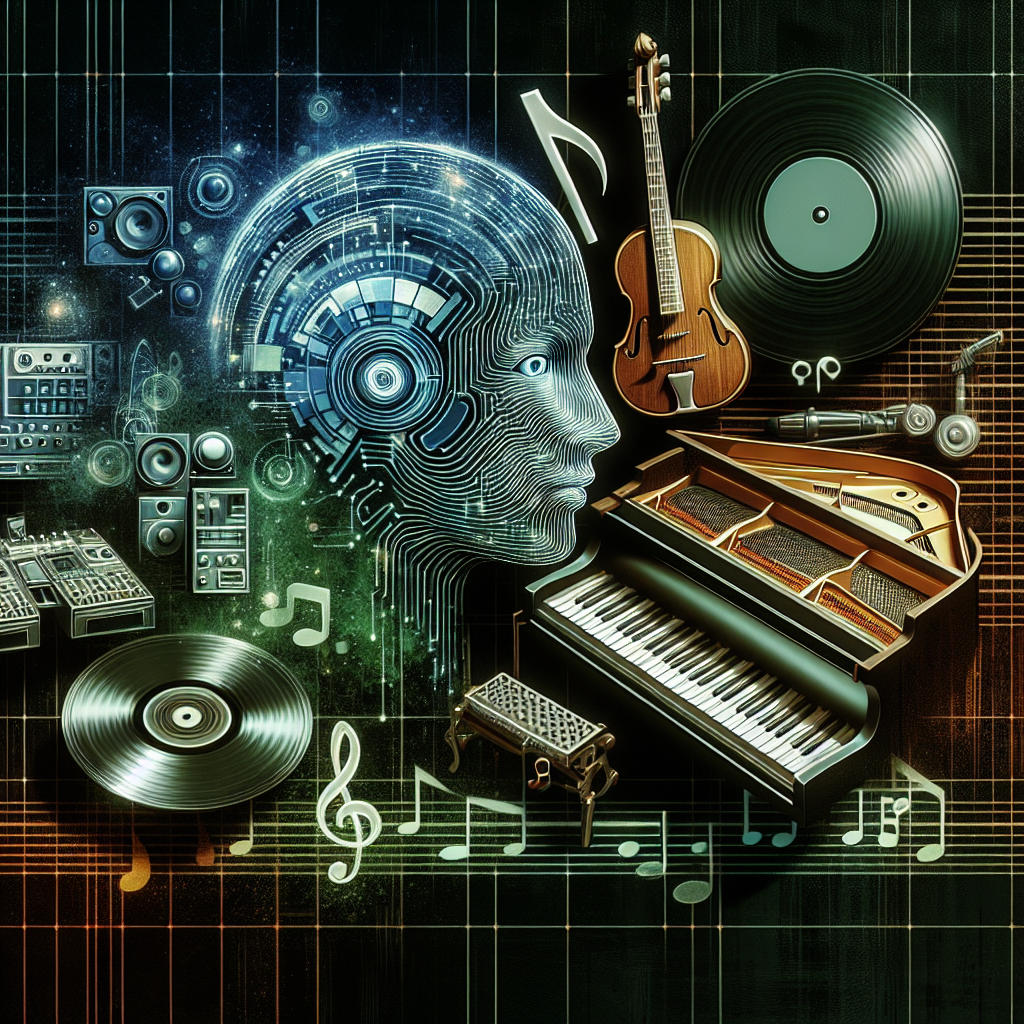The Future of AI in Music Production and Composition
Artificial Intelligence (AI) has been making waves in numerous industries, from healthcare to transportation, and now it is revolutionizing the music industry as well. AI technology is being used to enhance the music production and composition process, offering new tools and techniques for musicians and producers to create music in innovative ways. This article will explore the future of AI in music production and composition, including the benefits, challenges, and potential impact on the industry.
Benefits of AI in Music Production and Composition
One of the main benefits of AI in music production and composition is its ability to streamline the creative process. AI algorithms can analyze vast amounts of data, such as music theory, chord progressions, and melodies, to generate new ideas and suggest improvements. This can help musicians and producers overcome creative blocks and inspire new directions for their music.
AI can also assist with tasks that are traditionally time-consuming and tedious, such as audio editing, mixing, and mastering. By automating these processes, musicians can focus more on the creative aspects of their music, leading to faster and more efficient production.
Another advantage of AI in music production is its ability to personalize music for individual listeners. AI algorithms can analyze listener preferences and behavior to create customized playlists, recommendations, and even generate new music tailored to specific tastes. This can help artists reach a wider audience and connect with fans on a deeper level.
Challenges of AI in Music Production and Composition
While AI offers many benefits to the music industry, there are also challenges that need to be addressed. One of the main concerns is the potential loss of human creativity and originality in music production. As AI algorithms become more advanced, there is a risk that music created by machines will sound generic and lack the emotional depth and authenticity that comes from human expression.
There are also ethical considerations to take into account when using AI in music production. For example, there may be issues surrounding intellectual property rights and copyright infringement when AI is used to generate music that sounds similar to existing songs. Additionally, there are concerns about the impact of AI on the job market, as automation could potentially replace human musicians and producers in certain roles.
Another challenge is the need for AI technology to be accessible and affordable for all musicians and producers. As AI tools become more sophisticated, there is a risk that only large record labels and music production companies will have access to the latest technology, creating a more unequal playing field in the industry.
The Impact of AI on the Music Industry
Despite these challenges, AI is already having a significant impact on the music industry, and this is only expected to grow in the future. AI technology is being used by major record labels, streaming platforms, and independent artists alike to create new music, analyze listener data, and improve the overall music listening experience.
AI is also changing the way music is composed and produced, with new tools and techniques being developed to enhance creativity and innovation. For example, AI algorithms can generate new melodies, harmonies, and rhythms that musicians can build upon to create unique and original compositions. AI can also help with audio processing, such as removing background noise, enhancing vocals, and adding effects, to improve the overall quality of the music.
Furthermore, AI is being used to create new opportunities for collaboration and experimentation in music production. For example, AI can facilitate remote collaboration between artists in different locations, allowing them to work together in real-time on a shared project. AI can also help musicians explore new genres and styles of music by analyzing existing songs and suggesting new ideas for experimentation.
FAQs
Q: Can AI replace human musicians and producers?
A: While AI technology is becoming increasingly sophisticated, it is unlikely to completely replace human musicians and producers in the music industry. AI can assist with certain tasks and processes, but human creativity, emotion, and intuition are essential elements of music production that cannot be replicated by machines.
Q: How can musicians and producers benefit from using AI technology?
A: Musicians and producers can benefit from using AI technology in various ways, such as streamlining the creative process, automating tasks, personalizing music for listeners, and exploring new ideas and styles. AI can help musicians overcome creative blocks, improve the quality of their music, and reach a wider audience with customized content.
Q: What are some examples of AI tools and techniques being used in music production?
A: Some examples of AI tools and techniques being used in music production include AI-generated melodies, harmonies, and rhythms, audio editing and processing algorithms, personalized music recommendations, and collaborative platforms for remote collaboration. These tools can help musicians and producers create music more efficiently and creatively.
Q: What are the ethical considerations of using AI in music production?
A: There are several ethical considerations to take into account when using AI in music production, such as intellectual property rights, copyright infringement, job displacement, and access to technology. It is important for musicians and producers to be aware of these issues and to use AI technology responsibly and ethically.
In conclusion, the future of AI in music production and composition is promising, with new tools and techniques being developed to enhance creativity, efficiency, and innovation in the industry. While there are challenges and ethical considerations to address, AI has the potential to revolutionize the way music is created, produced, and consumed, offering new opportunities for musicians and producers to explore and experiment with their art.

